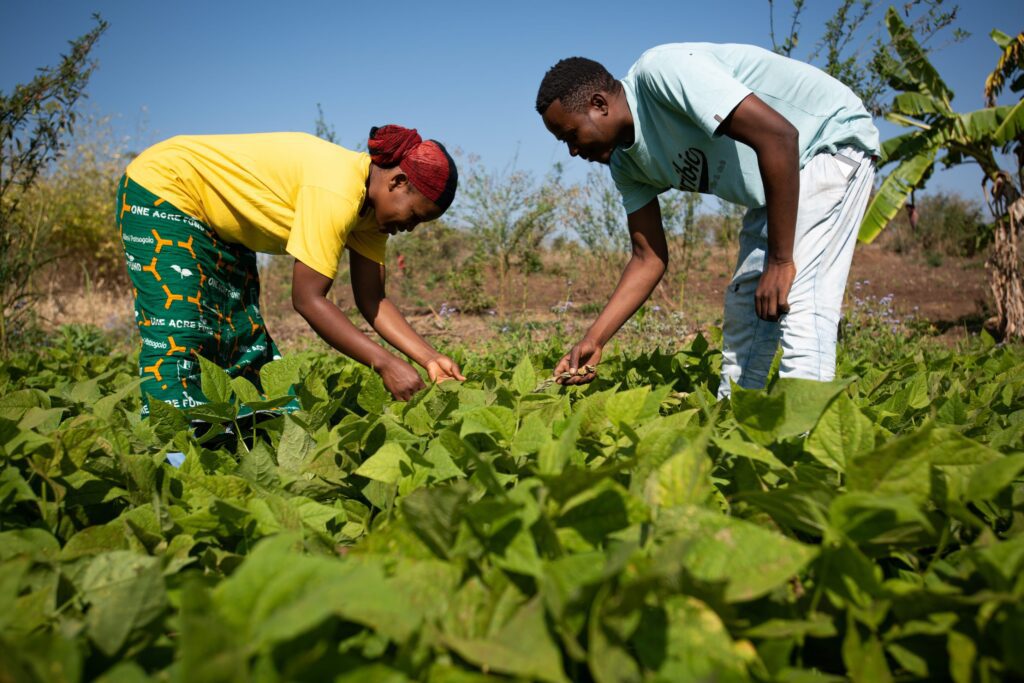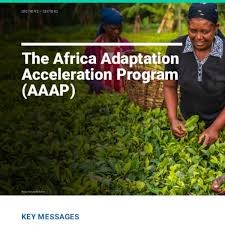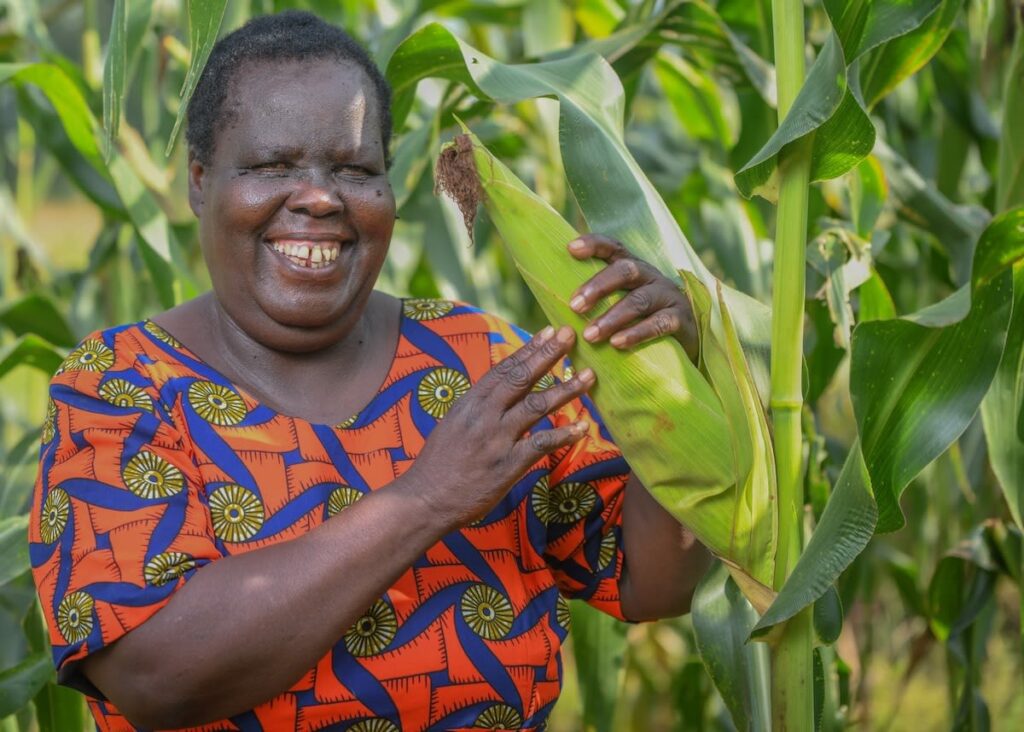

As the Regional Climate Change Coordinator for the United Nations Environment Programme (UNEP), Dr. Richard Munang has dedicated his career to promoting climate-smart solutions for Africa. His work focuses on sustainable agriculture, environmental resilience, and empowering communities to adapt to climate change. This article explores Dr. Munang’s efforts in climate-smart agriculture, highlights his initiatives for climate resilience, and showcases real-life success stories of Kenyan farmers embracing sustainable practices.
1.The Importance of Climate-Smart Agriculture for Kenya’s Food Security

Kenya’s Need for Food Security
Kenya’s agricultural sector faces challenges of droughts, erratic rainfall, and soil degradation. These climate effects threaten food security for millions of Kenyans who rely on farming for sustenance and income. Dr. Munang’s advocacy for climate-smart agriculture is critical, as it offers sustainable solutions that address food security and environmental protection.
CSA’s Three Main Goals
- Increasing Agricultural Productivity: Climate-smart techniques aim to improve crop yields, ensuring food availability for Kenya’s growing population.
- Building Resilience: By promoting practices like soil conservation and water management, CSA helps farmers cope with climate shocks, such as droughts and floods.
- Reducing Greenhouse Gas Emissions: CSA encourages farming methods that reduce carbon emissions, such as no-till farming and agroforestry, supporting Kenya’s environmental goals.
- Impact on Society: Climate-smart agriculture supports a sustainable future for Kenya, ensuring that farmers can continue to grow food and maintain their livelihoods despite climate challenges.
2. Dr. Richard Munang’s Initiatives in Climate Change Resilience
Africa Adaptation Acceleration Program (AAAP)

Dr. Munang is a leading advocate for the AAAP, which supports adaptation initiatives across Africa, including Kenya. The program promotes climate-resilient agriculture, clean energy, and ecosystem management. In Kenya, AAAP projects focus on building infrastructure that withstands climate impacts, supporting the resilience of communities vulnerable to droughts and floods.
Promoting Agro-Industrialization
Dr. Munang encourages farmers to adopt climate-smart practices that can be scaled into agro-industrial ventures. By supporting value addition, such as processing crops into finished products, his initiatives help farmers earn higher incomes. This agro-industrial approach also reduces food waste, enhances food security, and provides jobs, contributing to Kenya’s economic resilience.
Ecosystem-Based Adaptation
Through the Ecosystem-Based Adaptation (EbA) program, Dr. Munang advocates for restoring natural ecosystems to combat climate change. EbA initiatives in Kenya focus on reforestation, soil conservation, and sustainable water management. These efforts not only protect biodiversity but also help regulate climate impacts, providing natural defenses against droughts and floods.
- Impact on Society: Dr. Munang’s initiatives strengthen Kenya’s ability to adapt to climate change, protect natural resources, and promote long-term resilience, supporting communities affected by climate variability.
3. Real-Life Examples of Kenyan Farmers Benefiting from Sustainable Practices
Maize Farmers Adopting Conservation Agriculture

In Machakos County, farmers have adopted conservation agriculture practices, such as minimum tillage and crop rotation, to protect soil health and conserve moisture. With Dr. Munang’s support, these farmers have reported improved maize yields and resilience to drought. Conservation agriculture helps them grow more food while preserving soil fertility, a critical factor for sustainable farming.
Agroforestry in Meru

Agroforestry, which involves integrating trees into farming systems, is gaining popularity in Meru County. Farmers here plant trees alongside crops to reduce soil erosion, improve soil fertility, and provide shade. Dr. Munang’s advocacy for agroforestry has helped Meru farmers create more sustainable, productive farms that withstand climate impacts better than traditional mono-crop farms.
Drought-Resilient Crop Adoption in Turkana
Turkana County, a semi-arid region, faces frequent droughts that endanger food security. Through Dr. Munang’s initiatives, farmers in Turkana are now growing drought-resistant crops like sorghum and millet, which require less water than maize. These crops have increased food production and provided a reliable income source, even during dry seasons.
Impact on Society: These examples demonstrate how sustainable practices protect farmers from climate impacts, ensuring food security and financial stability. Dr. Munang’s work empowers farmers to adopt techniques that safeguard their livelihoods while preserving Kenya’s natural resources.
4. The Future of Sustainability and Climate Action in Kenya
Expanding Climate-Smart Agriculture

Dr. Munang envisions a future where climate-smart agriculture becomes the standard across Kenya. He advocates for policies that encourage sustainable practices, increase investment in agricultural research, and support farmers in transitioning to climate-friendly techniques. This shift is essential to making Kenya’s agricultural sector more resilient and ensuring food security for future generations.
Public Awareness and Community Engagement
For sustainability to succeed, public awareness and community involvement are vital. Dr. Munang’s work includes training programs for farmers, outreach events, and partnerships with local organizations to educate communities about climate resilience. These efforts aim to build a network of informed citizens who actively participate in Kenya’s journey toward environmental sustainability.
Policy Support and Partnerships
Dr. Munang believes that collaboration between government, private sector, and international organizations is crucial for advancing climate action. He continues to advocate for policies that support environmental conservation, promote renewable energy, and foster sustainable agricultural practices, ensuring Kenya’s approach to climate change is both effective and inclusive.
- Impact on Society: Dr. Munang’s vision for a sustainable Kenya aligns with the country’s goals for economic and social development, offering a blueprint for climate resilience that protects future generations from climate risks.
Conclusion
Dr. Richard Munang’s commitment to climate-smart agriculture and sustainability is paving the way for a resilient Kenya, where communities can thrive despite the challenges of climate change. By championing sustainable farming practices, promoting resilience initiatives, and advocating for climate-friendly policies, Dr. Munang empowers Kenyan farmers to protect their livelihoods and Kenya’s natural resources. Kenyan Chronicles will continue to follow Dr. Munang’s work and share the inspiring stories of Kenyans fighting for a greener, more sustainable future.








